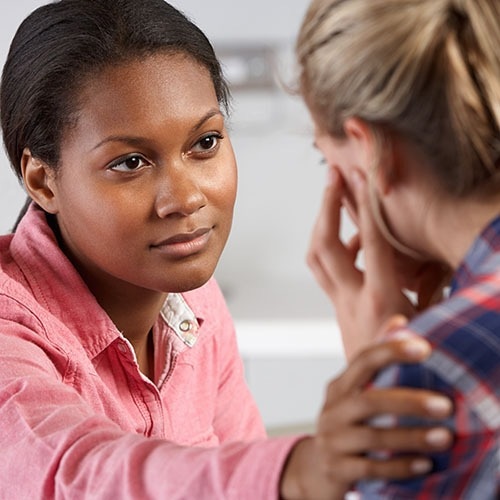Child protection experts are imploring clinicians to broaden their duty of care to ensure that patients’ hidden trauma is not overlooked by more obvious physical symptoms and illnesses.

Image Credit: University of South Australia
It’s a move to reduce the growing rates of chronic disease and mental health issues in Australia, many of which are underlined by deep-seated trauma as a result of child abuse and neglect.
In an editorial published in the British Medical Journal this week, University of South Australia’s Professor Leonie Segal says a whole-of-person approach to medical care is vital to address poor health outcomes associated with child abuse and neglect.
“There is sound evidence that child abuse and neglect is causally related to very poor health, including early death,” Prof Segal says.
“Many chronic diseases, including severe mental illness, chronic pain, substance use, and physical health conditions – especially those with an inflammatory pathway such as gastrointestinal, respiratory, and autoimmune disease – are more common in victims of child abuse and neglect.
“Yet too often, patients present with physical symptoms that are treated, without sufficient consideration of possible underlying trauma.
“We know that people who have suffered child abuse and neglect are more likely to have chronic disease, so we need to encourage clinicians to extend their care to consider possible underlying psychosocial causes.”
Adopting clinical approaches that incorporate a therapeutic response to address underlying trauma – of which there are many successful models – may prove more effective than a response limited to presenting symptoms and potentially avoid extensive investigations and surgery.
Prof Segal says it’s clear that Australia needs to prioritize the health and welfare of people who have experienced serious child abuse and neglect, noting their very poor health outcomes, but proportionate responses are rare.
“Addressing child abuse and neglect is not just a child protection issue; it’s a whole-of-society issue that requires an informed and proportionate response across health, social, and economic platforms. But health in particular must step up,” Prof Segal says.
A change in the clinical response is a solid start. If clinicians can think about a trauma-informed biopsychosocial model of health, it could help reduce the disturbing negative health (and social) impacts of exposure to serious child abuse and neglect and help reduce the transmission of this abuse and neglect to the next generation. Extra training and skill development across the health and human services sector will be needed. But this investment will help clinicians to identify and respond sensitively and expertly to people with histories of trauma, as well as target multiple aspects of chronic health, improving clinical outcomes and reducing the need for investigations and other medical interventions.”
Professor Leonie Segal, University of South Australia
Source:
Journal reference:
Segal, L., & Amos, J. (2023). The serious health consequences of abuse and neglect in early life. BMJ. doi.org/10.1136/bmj.p930.